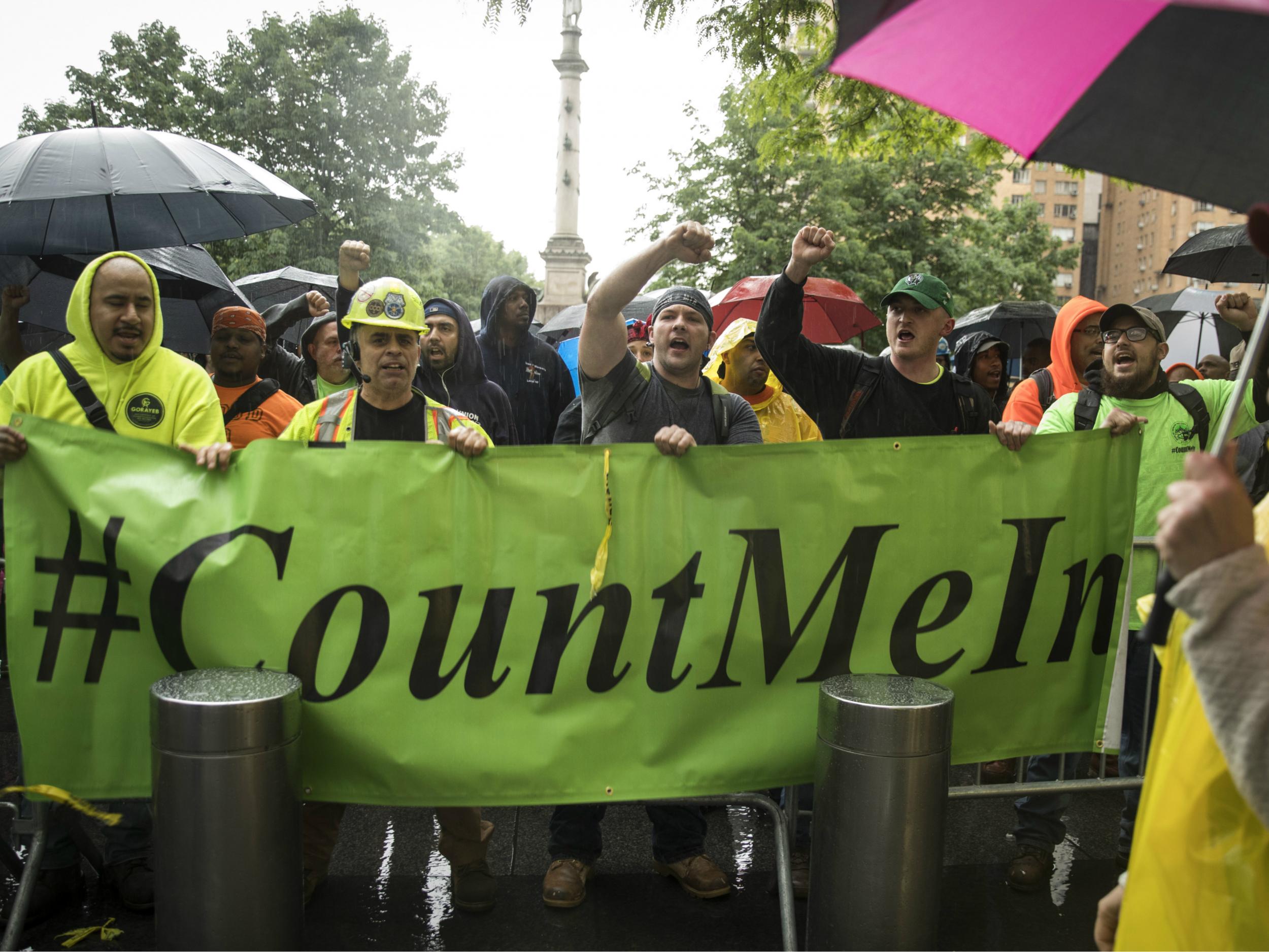US Supreme Court deals blow to unions with ruling that government workers do not have to contribute to them
Government employees do not have to pay dues even if they benefit from union-led contract negotiations

In a decisive blow to organised labour, the US Supreme Court has ruled that government workers cannot be forced to contribute to unions.
The conservative-leaning bench overturned a 41-year-old ruling that had allowed states to require public employees to pay fees to unions which represented the workers in collective bargaining, even if those public sector workers had decided not to formally join the union.
The case, Janus vs American Federation of State, County and Municipal Employees (AFSCME), was decided with a narrow 5-4 vote.
Illinois state government worker Mark Janus had argued that everything unions do, including bargaining with the state on behalf of public sector employees, is political and employees should not be forced to pay for it though they benefit from contract negotiations.
The unions argued that fair share fees pay for collective bargaining and other work the union does on behalf of all employees, not just its members. More than half the states already have right-to-work laws banning mandatory fees, but most members of public-employee unions are concentrated in states that don't, including California, New York and Illinois.
"States and public-sector unions may no longer extract agency fees from non consenting employees," Justice Samuel Alito said in his majority opinion in the latest case in which Justice Neil Gorsuch, an appointee of President Donald Trump, provided a key fifth vote for a conservative outcome.
The ruling stated that requiring public sector employee non-members to pay fees to a union they may disagree with is a violation of those employees’ First Amendment rights.
It will free approximately five million non-union member employees in almost 12 states and Washington DC from being tied financially to labour unions but could stop dues-paying for services they could get for free, the court ruled.
Mr Alito acknowledged that unions could "experience unpleasant transition costs in the short term." But he said labour's problems pale in comparison to "the considerable windfall that unions have received...for the past 41 years."
Some union leaders have said they expect to lose revenue and they are worried that those who pushed to get the non-member fees eliminated will try to encourage people to quit unions or stop paying dues.
But American Federation of Teachers President Randi Weingarten said on the power of the labour movement: “Don’t count us out”.
Mr Trump responded with his approval, tweeting "Big loss for the coffers of the Democrats!"
Justice Elena Kagan, appointed by President Barack Obama, wrote the dissenting opinion.
"There is no sugarcoating today's opinion. The majority overthrows a decision entrenched in this Nation's law — and its economic life — for over 40 years. As a result, it prevents the American people, acting through their state and local officials, from making important choices about workplace governance. And it does so by weaponising the First Amendment, in a way that unleashes judges, now and in the future, to intervene in economic and regulatory policy,” she wrote in a scathing opinion which the three other liberal judges joined.
The court heard a similar issue in 2016 when it was split evenly 4-4, but delayed the expected decision due to the sudden death of conservative Justice Antonin Scalia.
After Mr Gorsuch was appointed by Mr Trump - an appointment labour unions vehemently opposed - the case was hurried back to the court by proponents of eliminating the fees.
It is the second such victory for American political conservatives in as many days. The court also ruled to keep Mr Trump’s travel ban in place which severely limits travellers and refugees, even many with legal visas, from Iran, Libya, Somalia, North Korea, Venezuela, Syria, and Yemen from entering the country.
Justice Anthony Kennedy, who often served as a swing vote between the liberal and conservative members of the court, announced his retirement from the bench on 27 June, opening another slot for Mr Trump to fill with a conservative.
Agencies contributed to this report.
Join our commenting forum
Join thought-provoking conversations, follow other Independent readers and see their replies
Comments